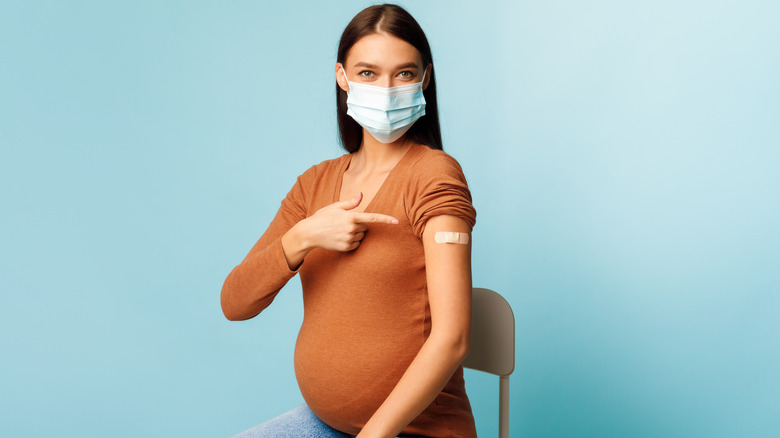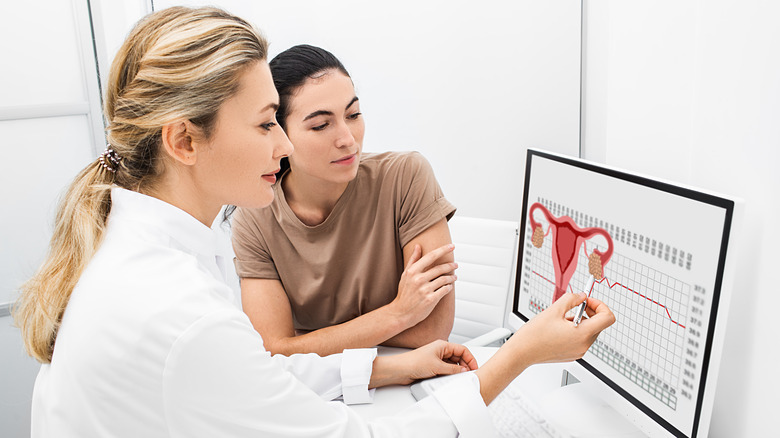How Do COVID-19 Vaccines Really Impact Reproductive Health?
Nearly 3,000 people disclosed to the CDC Vaccine Adverse Event Reporting System that they have experienced changes to their menstrual cycles, including irregular cycles and heavier-than-normal cycles, the Daily Mail reported. The Sunday Times also reported that the Medicines & Healthcare products regulatory agency received disclosures from 4,000 people in the U.K. saying that they experienced temporary problems with their menstrual cycles after getting the shot. Most irregular periods and changes were reported by people who received the AstraZeneca vaccine, while others received the Pfizer and Moderna vaccines.
Although some seem to be experiencing changes in their cycles after getting vaccinated, these changes are rare and temporary, according to gynecologists who spoke with the Daily Mail. It's also important to remember that period changes can be caused by stress or hormone changes and may not necessarily be due to the vaccine itself. Wondering if the vaccine could potentially impact your fertility? Here's what we know.
There is no evidence showing COVID-19 vaccines impact reproductive health
While some have reported menstrual changes, there is no evidence that the COVID-19 vaccines affect reproductive health, the Centers for Disease Control and Prevention confirmed. The CDC further explained that the COVID-19 vaccines are safe and effective for anyone aged 12 and older. This includes people who are pregnant, breastfeeding, trying to get pregnant, or want to get pregnant in the future.
Research is being conducted related to menstrual changes after vaccination, according to the National Institutes of Health (NIH). Boston University, Harvard Medical School, Johns Hopkins University, Michigan State University, and Oregon Health and Science University each received grants to conduct this research. "These rigorous scientific studies will improve our understanding of the potential effects of COVID-19 vaccines on menstruation, giving people who menstruate more information about what to expect after vaccination and potentially reducing vaccine hesitancy," National Institute of Child Health and Human Development director Diana W. Bianchi told NIH.


